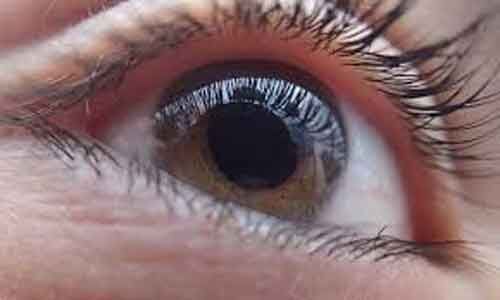- Home
- Medical news & Guidelines
- Anesthesiology
- Cardiology and CTVS
- Critical Care
- Dentistry
- Dermatology
- Diabetes and Endocrinology
- ENT
- Gastroenterology
- Medicine
- Nephrology
- Neurology
- Obstretics-Gynaecology
- Oncology
- Ophthalmology
- Orthopaedics
- Pediatrics-Neonatology
- Psychiatry
- Pulmonology
- Radiology
- Surgery
- Urology
- Laboratory Medicine
- Diet
- Nursing
- Paramedical
- Physiotherapy
- Health news
- Fact Check
- Bone Health Fact Check
- Brain Health Fact Check
- Cancer Related Fact Check
- Child Care Fact Check
- Dental and oral health fact check
- Diabetes and metabolic health fact check
- Diet and Nutrition Fact Check
- Eye and ENT Care Fact Check
- Fitness fact check
- Gut health fact check
- Heart health fact check
- Kidney health fact check
- Medical education fact check
- Men's health fact check
- Respiratory fact check
- Skin and hair care fact check
- Vaccine and Immunization fact check
- Women's health fact check
- AYUSH
- State News
- Andaman and Nicobar Islands
- Andhra Pradesh
- Arunachal Pradesh
- Assam
- Bihar
- Chandigarh
- Chattisgarh
- Dadra and Nagar Haveli
- Daman and Diu
- Delhi
- Goa
- Gujarat
- Haryana
- Himachal Pradesh
- Jammu & Kashmir
- Jharkhand
- Karnataka
- Kerala
- Ladakh
- Lakshadweep
- Madhya Pradesh
- Maharashtra
- Manipur
- Meghalaya
- Mizoram
- Nagaland
- Odisha
- Puducherry
- Punjab
- Rajasthan
- Sikkim
- Tamil Nadu
- Telangana
- Tripura
- Uttar Pradesh
- Uttrakhand
- West Bengal
- Medical Education
- Industry
Glaucoma study findings emphasise need for regular eye checks

People with early-stage glaucoma see the contrast of visible objects in a very similar way to people without the condition, a new study has shown.
Research by the University of Bradford (UK) demonstrated that the brain compensates for the changes in the eye caused by glaucoma, when looking at objects with everyday levels of contrast. The findings add to our understanding of why glaucoma patients report few early symptoms of the disease and may not seek testing until their disease is more advanced.
Glaucoma is a common eye condition affecting half a million people in Britain, where the optic nerve which connects the eye to the brain becomes damaged. It develops slowly over many years and affects peripheral vision first. If untreated, glaucoma results in permanent vision loss.
Glaucoma makes it harder to see contrast - the differences between shades of light and dark - so the eyes are less able to detect low contrast objects. But until now it's not been clear if this contrast sensitivity loss means that patients with glaucoma see visible objects in a different way from healthy people.
Now, the University of Bradford team has shown that people with glaucoma see detectable contrast in the same way as healthy patients, despite their measurable vision loss.
In the study, 20 participants with early- to moderate- stage glaucoma had their disease confirmed, and their areas of peripheral vision loss mapped. They were then asked to respond to a screen display of patterned patches. They adjusted the controls until an image in their poor areas of vision looked equally as bright or dim as a central patterned patch. An eye tracker was used to ensure each patient was looking in the correct place before the central patch could be seen. A control group of healthy participants was tested in the same way.
The researchers found that participants with glaucoma didn't see the image as paler, or 'greyed out' in any way; instead they saw it in exactly the same way as people with healthy vision. The results suggest that glaucoma patients' brains are compensating for damage to the optic nerve.
Dr Jonathan Denniss, a qualified optometrist and lecturer at the University of Bradford, led the study. He said: "This underlines why it's so important to get eyes tested routinely so that glaucoma can be picked up before damage is established. It ties in with the fact that people who have glaucoma initially don't report any symptoms: their brains are successfully overcoming a loss of contrast sight."
He added: "It's always struck me as strange that we all accept the need for routine dental checks to maintain the health of our teeth and mouth, but that routine eye checks among the general population are not considered as important. This is a reminder to get your eyes checked regularly, even if they seem to be fine."
Hina Zahid Joined Medical Dialogue in 2017 with a passion to work as a Reporter. She coordinates with various national and international journals and association and covers all the stories related to Medical guidelines, Medical Journals, rare medical surgeries as well as all the updates in the medical field. Email: editorial@medicaldialogues.in. Contact no. 011-43720751
Dr Kamal Kant Kohli-MBBS, DTCD- a chest specialist with more than 30 years of practice and a flair for writing clinical articles, Dr Kamal Kant Kohli joined Medical Dialogues as a Chief Editor of Medical News. Besides writing articles, as an editor, he proofreads and verifies all the medical content published on Medical Dialogues including those coming from journals, studies,medical conferences,guidelines etc. Email: drkohli@medicaldialogues.in. Contact no. 011-43720751


